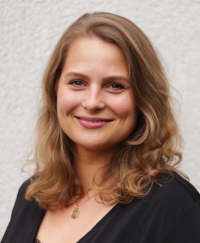Over the course of the last few months, we have been looking at different aspects of how choice shapes diabetes management. The Ascensia Blogger Editorial Board is made up of people from various backgrounds and we’ve each looked at this topic from a slightly different angle: The Grumpy Pumper is from the UK and shared some personal choices that have shaped his life with diabetes, from his initial diagnosis with type 1 diabetes until today. Kelly, who is from the U.S., shared insights about the shaming of diabetes choices within the diabetes community itself. She argued, rightfully so, that we need to respect each other’s choices. After all, nobody chose to have diabetes in the first place, so we all have to find our own way to deal with it. Corinna, a person with type 2 who lives in Hawaii, focused on the ”behind the scenes“ aspects of choice: she analyzed how government’s healthcare policies impact healthcare availability and affordability and therefore shape the choices that are available to us. Renza lives in Australia and wrote about the different aspects of choice and how they impact on our decision making. Regardless of where we live in the world and how much choice is available to us, we still need to make an average of 180 decisions about our diabetes management per day!
For my piece on this topic, I want to take a closer look at the perspectives of people with diabetes from different geographies. What choices are available to people living in different countries with their own health care systems? What choices do people want, but don’t have? What choices impact their lives with diabetes the most?
Of course, there are vast regional differences. So many people across the globe still lack access to insulin and test strips, let alone the latest technological advances of diabetes management. Some of us, and living in Germany I do count myself in that category, are therefore in positions of privilege with an abundance of choices available to us. But although this is incredibly important to acknowledge, that does not mean that these healthcare systems are perfect. Even though the issues of people with diabetes in those privileged systems pale in comparison to the situations that people in other countries are facing, these issues are still valid.
I was particularly interested in these nuances, the different definitions and perspectives on choice. And rather than telling you about all that myself, I’ve decided to open the discussion and ask people from all across the world. A big thank you to everyone who contributed and shared their fascinating and insightful viewpoints!
Apoorva Gomber from India
“Choice comes in various forms and can actually mean different things to different people. When it comes to living with diabetes a lot of your management depends on what is available. What options are there and what choices can you make? And this is often determined due to factors like access and affordability. In India, just like any developing country, the management of diabetes has really grown over the years. There is no doubt that today people have more options regarding their glucometers and analogues of insulin. You have got to make the choice and your diabetes team plays an important role here.
Here comes financial capacity as a key factor. India is a huge country with diversity at its peak. In cities, there are choices which people living with diabetes can make from testing 4-5 times a day to switching to wearing a CGM. However, these are also limited, as they aren’t the one’s available in other countries. We have older versions and I feel privileged to be able to afford to wear one.
But on the other hand, in the same country there are some people who can’t make the choice to test once a day or once a week. And that defines the diversity of diabetes management in India! We are still developing everyday .. improving lives .. saving people from devastating complications of this disease... Diabetes never came as a choice, but a lot of its management is dependent on the choices one can make based on dozens of variables.”
Paul-Louis Fouesnant from France
“I am very grateful that in France, I can benefit free of charge from excellent healthcare and from access to technology, such as insulin pumps or FGM/CGM which makes life a lot easier.
Unfortunately not everybody around the globe has this chance. In Madagascar, testing blood sugars is a luxury that most of the people cannot afford. Since 2017, I have been working in this country with local doctors on improving the access to medicines and healthcare for people with diabetes.”
Ana Paola Peraza from Venezuela
“In Venezuela, there are not many options for people with diabetes. It is true that there are foundations that help a lot. But in terms of food and treatment, there are no choices: We take what is available.
Personally, I do not have many options because I do not have a good financial situation and simply because it is very difficult in Venezuela. For example, glucometers are not available and there are no test strips either. There is only one glucometer from Cuba that our government supplies, but they don’t have enough. The only way to get other brands of test strips is by traveling to another country or having them shipped from there.
As for the health system in Venezuela: It does not work well. We really do have excellent doctors, but they can only work with what they have. Hospitals do not have any capacity and there is no law that helps with the treatment of people with chronic conditions.
Of course my experience is totally different from that of others in Venezuela because everyone’s lives and realities are different. There are people in Venezuela who live with type 1 diabetes and use an insulin pump – but only if they can afford to pay for their full treatment. I think there are also big differences between the cities and regions within the country. In some cities, more choices and supplies are available for people with diabetes. But in my city, there is not much for me to choose from.
Sometimes I feel like I live on another planet: On social media, I can see that people with diabetes in other countries have more options and choices, and they receive much more support in their diabetes management. In Venezuela, it is not like that.”
Cathy Jansen from the Netherlands
“I think we can agree that someone with any type of diabetes has a lot of choice in the Netherlands. For companies, the Netherlands has an interesting healthcare system and it's not too hard to enter the market. This means that we benefit from most of the different types of insulin, meters, pens, pills and pumps. Since December flash glucose monitoring is (finally) covered by the health insurance for people with insulin dependent diabetes. The last 'struggle' is CGM. It's considered a luxury by the authorities, only available for people with 'poorly controlled' diabetes, women who want to get pregnant or young children. As a 34 year old woman it's almost tempting to say I want to have a baby, which I do not, as a way to get a CGM.
But for me personally, the most important choice is choosing the right healthcare provider. I've shopped around and changed diabetes specialist nurses, until I found one that I feel understood by, who coaches and supports me. Even if my questions are sometimes a bit out of the ordinary, like participating in scientific research or trying a new pump. She looks beyond the guidelines and advises me on what is best for me. I think it's important for people to know that you have a choice and you can (maybe even must) change when it doesn't feel right. You need to do that for yourself, it's a privilege you need to use.
I know how it can be if you don't have a choice. If you have to use what's available, if anything is even available. Together with my partner, I manage Insulin for Life in the Netherlands and we hear first-hand about stories of people dying because there's no insulin. Insulin for Life is active in 9 countries and collects left over and non-expired insulin and diabetes supplies that otherwise would end up in the bin. These materials are shipped to those countries where diabetes supplies and insulin is not available or is very scarce and expensive. It's unbelievable that insulin was discovered almost 100 years ago and we still have to do this. But we have to con tinue this work until something changes.
So if you have left over and non-expired insulin or diabetes supplies like test strips, check www.insulinforlife.org to connect with one of the organizations near to you.
Sarah Biyinzika and Edith Mukantwari from Uganda
Sarah:
“In Uganda, there aren’t a lot of choices when it comes to diabetes medical supplies, like insulin. When I was diagnosed with type 1 diabetes in 2007, only syringes and one single type of insulin were available. I used them for close to three years. I was later changed to newer types of insulin that I have now been using for the last 10 years.
A few insulin types and insulin pens are now available, however they are expensive. I am hoping that having a variety of insulin types will increase doctor’s choices on what insulin to prescribe to help us manage our blood sugars. With more insulin types, we can make more choices which will hopefully result into more realistic prices and in return improve our blood sugars and HbA1c levels. That is why I volunteer at the African Diabetes Alliance where we aim to nurture a vibrant, engaged and empowered community of people living with diabetes.”
Edith:
“Choices are severely limited in Uganda, as Sarah mentioned. I feel like I have not had much choice in my management because choices are limited - so we tend to go with what the doctors say. However, I recently made the choice to switch from one human insulin to a more modern one and it is giving me much more stable blood sugar results.
But in addition to limited treatment options, I would like to point out that information is also severely limited and it can be challenging to understand your options if you can’t get valuable information about available medication options, positive lifestyle changes, social and peer support options, the availability of insurance schemes, et cetera.
At Africa Diabetes Alliance, we focus a lot on providing valid information that can support patients with their blood sugar management goals. We provide diabetes education and focus a lot on nutrition and lifestyle changes. We also offer peer support services by giving a platform for patients to share their stories and connect with others. The response has been amazing, as patients are learning more and taking their power back. We also raise awareness about diabetes in the community through community outreach and media features.”
Mila Clarke Buckley from the USA
“It is a well-known fact that in the US, many people with type 1 diabetes are significantly impacted by the rising prices for insulin. However, people with type 2 diabetes also struggle to access the healthcare they need. We need to work together!
None of us chose diabetes, but sometimes the choices we must make about our diabetes management are defined by our access or our privilege.
Someone with type 2 diabetes may want to use a CGM, but insurance may only cover fingersticks. Sometimes a medical provider may say "you're type 2, and you don't need that." A person with diabetes may want to check their blood sugar more than just after dinner, or when waking, but they're only prescribed 1 test strip a day to help them make that decision.
Sometimes you want to go out to eat with friends and have a great time, but you know that you also have to spend money on insulin and oral medication, test strips, doctor's visits and more. Your budget doesn't make that a priority, and so the choice is made for you.
The freedom that comes with choice is often a privilege in diabetes management.
It's unfortunate that there are prohibitive costs to managing diabetes -- most things associated with diabetes management are quite expensive. We have to remember that not everyone has the means, or can make the choice to take care of diabetes in the most ideal way.
It's up to us to examine why choice is out of reach for some, and what we can do to make sure everyone can make the choices that best suit them.”



